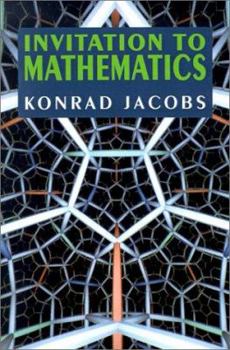Invitation to Mathematics
Select Format
Select Condition 
Book Overview
Based on a well-received course designed for philosophy students, this book is an informal introduction to mathematical thinking. The work will be rewarding not only for philosophers concerned with mathematical questions but also for serious amateur mathematicians with an interest in the "frontiers" as well as the foundations of mathematics. In what might be termed a sampler of the discipline, Konrad Jacobs discusses an unusually wide range of topics, including such items of contemporary interest as knot theory, optimization theory, and dynamical systems. Using Euclidean geometry and algebra to introduce the mathematical mode of thought, the author then turns to recent developments. In the process he offers what he calls a "Smithsonian of mathematical showpieces" the five Platonic Solids, the Mbius Strip, the Cantor Discontinuum, the Peano Curve, Reidemeister's Knot Table, the plane ornaments, Alexander's Horned Sphere, and Antoine's Necklace. The treatments of geometry and algebra are followed by a chapter on induction and one on optimization, game theory, and mathematical economics. The chapter on topology includes a discussion of topological spaces and continuous mappings, curves and knots, Euler's polyhedral formula for surfaces, and the fundamental group. The last chapter deals with dynamics and contains material on the Game of Life, circle rotation, Smale's "horseshoe," and stability and instability, among other topics.





